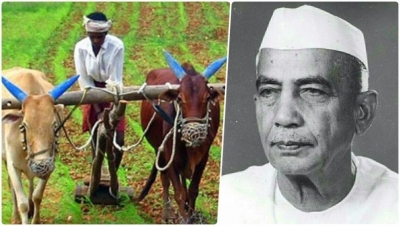
Chaudhary Charan Singh (23 December 1902 – 29 May 1987) served as the 5th Prime Minister of India between 28 July 1979 and 14 January 1980. Historians and people alike frequently refer to him as the ‘champion of India’s peasants.’
In his cameo as prime minister, two-time chief minister of Uttar Pradesh and union home and finance minister, Chaudhary Charan Singh became the face of farmers and their needs. In his tenure, he introduced various policies to improve the lives and conditions of the farmers. The principal architect of the UP Zamindari Abolition Act, Singh has also authored books on zamindari abolition, land reforms and the establishment of an economically self-sufficient peasantry in UP.
To relieve the farmers of moneylenders, he introduced the Debt Redemption Bill in 1939 in the state assembly. Land Utilisation Bill, drafted by Singh in April 1939, aimed to “transfer the proprietary interest in agricultural holdings of UP to such of the tenants or actual tillers of the soil who chose to deposit an amount equivalent to ten times the annual rent in the government treasury to the account of the landlord”.
Rooting for a rural democracy, Singh opposed a resolution of joint, co-operative farming passed in 1959 by Congress — a party he defected from only to form the largest “most successful agrarian party in modern Indian politics, the Bharatiya Kranti Dal (BKD), which later, under different names, also became the core of the opposition”.
Owing to the leader’s contribution to India’s agrarian concerns, Singh’s memorial in New Delhi is named Kisan Ghat.
Picture Credit : Google

